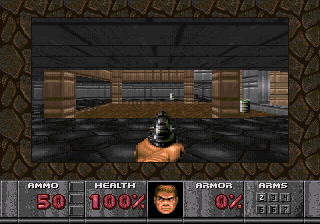Emulation's contribution to "retrorevisionism" (ft. MercuryCDX)
And it has nothing to do with feeling "better" or "right"
opinions about certain things or necessarily disagreeing with what
others would consider "canon" in terms of the general consensus. It's
more that, we've always been more interested in looking at topics,
themes, games, etc. that are basically overlooked or ignored because
they aren't as popular.
I think some folks here are kind of aware of my strange disdain for how Sega of America did things in the 90s, specifically regarding how the legacy and the library of both the Genesis and Saturn turned out specifically in the US/the west, and how most retro communities essentially discuss those consoles and their libraries, which I find to be both fascinating and frustrating.
Our main complaint about a lot of retro gaming communities is the same as
it has been ever since the early days of the World Wide Web and message
board/forum discussions and early retro video game websites: they're
very Nintendo-centric/biased, and I feel like they've revised/rewrote
the history of how the NES and 16-bit eras were actually perceived.
Especially the "16-bit console wars" of the US, which is extremely
Nintendo-biased and cites genres and games that may not have actually
had any real influence in the sales and popularity of one platform over
the other (RPGs on the SNES in the US specifically) to write up a very
romanticized version of that era from people who were like maybe
pre-teens or teens when that was going on.
Anyhow, that's where my
weird "impostor syndrome" in retro game community spaces would probably
flare up and why I don't interact with most other communities. I avoid
the echo chamber and want to dig into researching other avenues of
appreciating the hobby."
-MercuryCDX
Mario Bros. was still - like Pitfall - culturally significant in how it pioneered a new genre and if you're into the historical aspect of games then, of course, it's the definitive game.
It's true that there is an echo chamber mostly decided by a popularity quota and word-to-mouth as well as marketing and these games are usually enjoyed by most because of their overall quality control and playability.
It's not like people romanticize bad games simply due to nostalgia - and people who played Tecmo Bowl probably moved up to the recent Madden, are sports games not as culturally significant?
I agree that there's revisionism, but mostly it was the far west, and everyone pumped up a ton of terrible games such as Manic Miner they got plenty of people to play. "
 |
| Final Fantasy was little known until the PlayStation hit "Final Fantasy VII" |
I was browsing the late 90s internet and it was the Final Fantasy craze, but strangely I had never heard of Final Fantasy 7 - and only played Final Fantasy II out of sheer curiosity. With emulators, you could pick-and-choose whatever games you wanted to play so obviously the one that stuck to me was Final Fantasy II.
Zophar's Domain mostly influenced people. The emulation website was founded on November 9, 1996, by Brad Levicoff. The site's name came from Lunar Eternal Blue on Sega CD, Saturn, and PlayStation. On September 20, 2000, the site was passed on to Sam Michaels. From November 2006 to June 17, 2008, Zophar's Domain was inactive. Michaels has stated that it should be considered an "archive." In its prime, it was generally regarded as an excellent news resource, reporting on every area of emulation development.
There is no doubt that piracy helped game literacy, and I imagine piracy also keeps a biased, post-scarcity version of game history alive."
- Diddy
 |
| Despite James Rolfe's discontentment, DOOM 32X was fairly well received on the Sega 32X. With its option to mute individual channels, Doom 32X was akin to an early Jaguar Doom, and the first playable version of DOOM on console systems. |
In regards to curation and whatnot, this is more a fun thought experiment, than trying to find a "definitive list"
It's not looking for the answer, it's more the act of finding a process
And maybe a psychological or sociological explanation as to how and why things like top games and games considered "canon" to a platform are decided upon by most communities.
As for magazines - for example, Nintendo Power magazine was obviously used as a marketing tool, though there are some metrics and statistics that can be grabbed from them to maybe make a few connections into what was popular at the time, namely, the Top charts per month, which according to early issues were a metric based on a strange scoring system involving reader votes, what the staff at NoA votes for, and what retailers were voting for (possibly related to sales data).
The problem with that metric is that not every (S)NES owner had a subscription to Nintendo Power magazine, let alone contributed to those metrics, so you'd have to approach that data with a big ol' rock of salt.
You'd also have to go into it wondering if Nintendo Power was acting in good faith regarding those metrics"
- MercuryCDX
 |
| From the beginning, Nintendo Power focuses heavily on providing game strategy, reviews, and previews of upcoming games. |
"There is definitely an era where people used emulators in masses, and we feel that era might be understated a lot, and how people started to use the internet in conjunction with emulators. Just both of them came at an unfortunate time enough that the data is skewed. I understand how that can be frustrating, but as far as we know, even trusted retro reviewers such as James Rolfe probably do revisionism on some of his game reviews. It makes me wonder how accurate our understanding of history actually is, and how much of it is nothing more but fiction - masquerading as truth.
-Diddy
-End of Discussion-

















